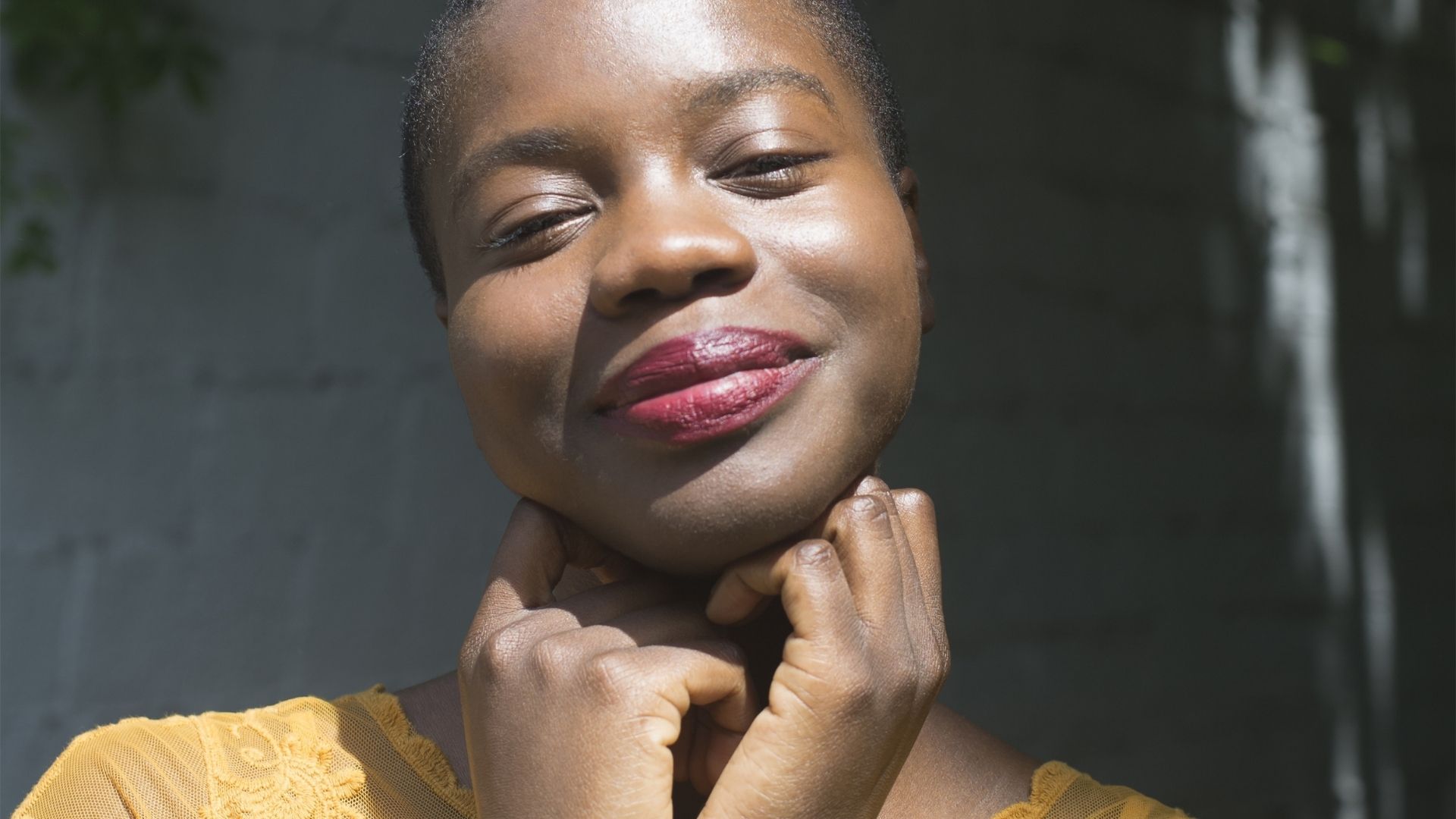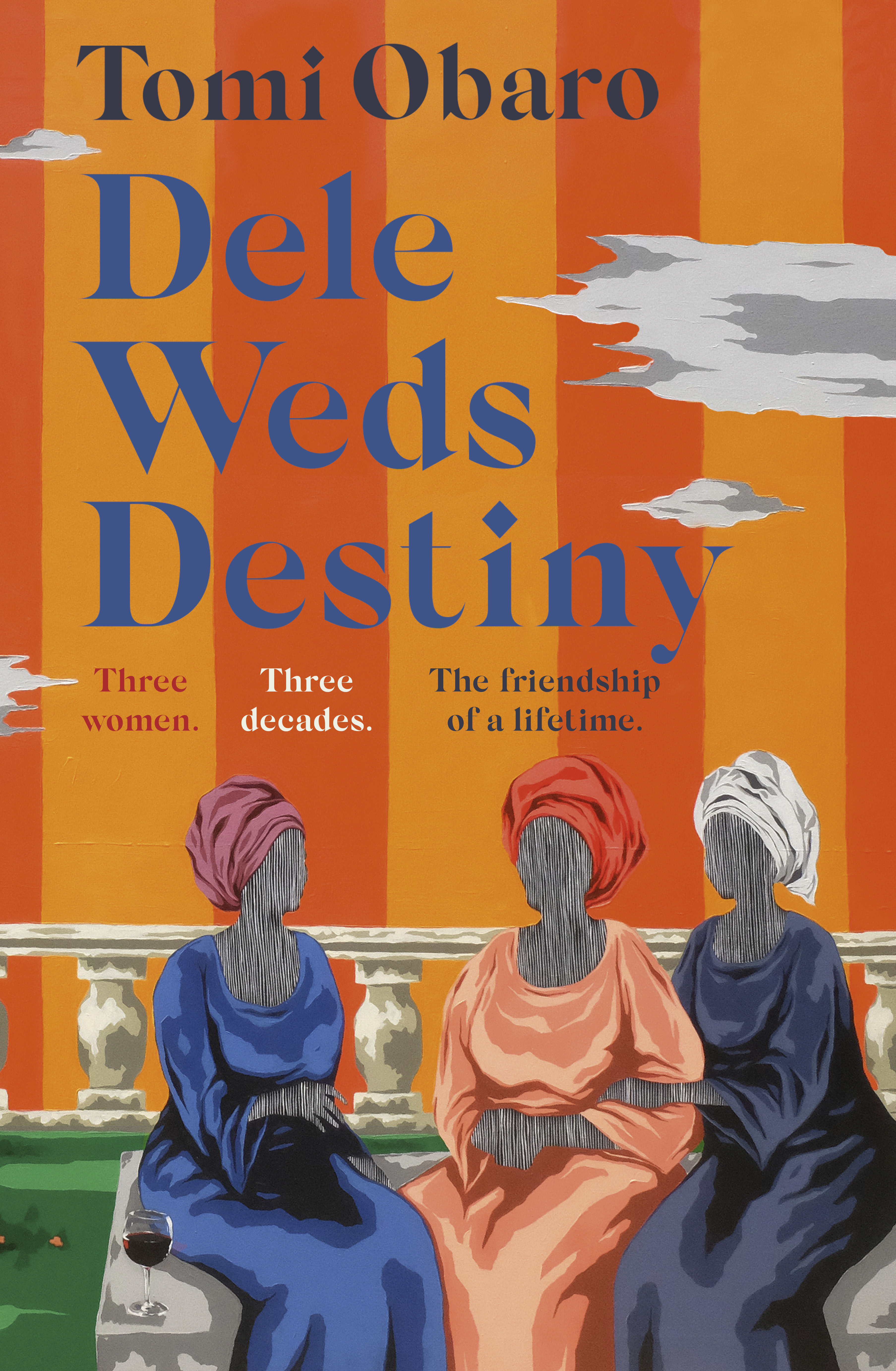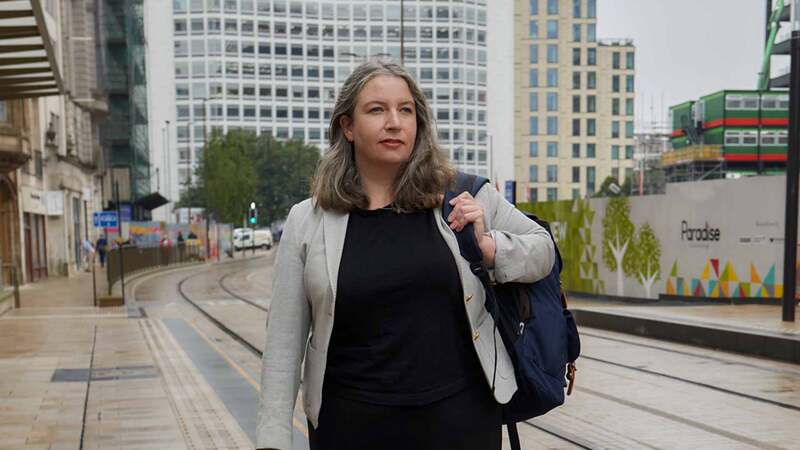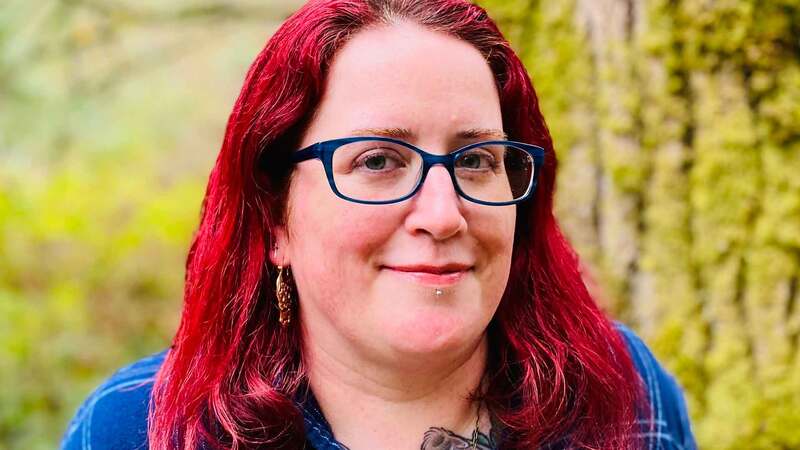You are viewing your 1 free article this month. Login to read more articles.
Tomi Obaro in conversation about Nigerian weddings and unconventional love stories
Hodder is backing Tomi Obaro’s novel, which covers three decades and an opulent Nigerian wedding, to make a splash.
Spoiler alert: Dele Weds Destiny is not a romance novel. “The title characters are more minor in the book, which I also thought was funny but nobody else does,” chuckles Tomi Obaro via Zoom from her Brooklyn apartment. Nothing brings people together—or tears them apart—like a wedding, especially in Nigeria, where dollar bills fly and guests peacock over their proximity to the celebrants. “It’s just very ridiculous,” she says of the spectacular (sometimes absurd) ceremonies. “I’ve always thought that that was an interesting source of drama and have been surprised at how little fiction has engaged with what is the pageantry of a certain kind of very opulent Nigerian wedding.”
This is a love story, but of a different kind. The lifelong bond between Funmi, Enitan and Zainab formed at university in Zaria, northern Nigeria, in the 1980s. They reunite for the wedding of Funmi’s daughter Destiny. “The crux of the book is about this friendship between these women and how it changes and endures over decades,” Obaro explains. Funmi, the former brusque babe on campus, is now a rich and bored housewife, single-handedly planning her daughter’s nuptials. Enitan returns to Nigeria having left for the white American man that she is now divorcing. Her plus-one is her headstrong daughter Remi. Zainab, who had aspirations of being a writer, leaves her ailing husband, whom she cares for full-time, to reconnect with her two best friends. Chaos and enjoyment ensue.
It’s a very hard place to live. I didn’t want to sugarcoat that fact
From vivid details of Kufena Hill to life on campus and in the back rooms of nail salons, Obaro cleverly pokes beneath the caricatured hustle and bustle of Nigeria to something more real, despite never having lived there. “I visited a lot. I used to live in the Gambia, so every summer we would go [to Nigeria] because flights were cheap.” Born to Nigerian parents in England, the family moved regularly, eventually settling in the US. But it’s the experience of her mother and her two best friends that inspired the book. Like Destiny, Obaro “grew up with them as my aunts and their kids are like my cousins”. On a trip to Paris to visit one aunt, something caught her attention. “I saw a photo of the three of them and I was like, ‘This is a novel’.” She stresses the real-life women are “really different” from the characters, but I wonder what her mum thinks about it? “She’s flattered, but I don’t know if she’s read it completely,” she says. “I’m OK if she doesn’t, you know. Support from afar.”
All the single ladies
In a haze of studying, sex, parents, politics, violence and economic struggle, Obaro skilfully manoeuvres between a generation of single women with varying relationships with their mothers—Enitan’s is too close for comfort; Funmi doesn’t have a mother; and Zainab has two due to her father’s polygamous marriage—to their own misadventures as wives, mothers and grandmothers. To get into the mindset, Obaro sought out writers from her mother’s and grandmother’s generation, reading domestic African novels by Buchi Emecheta, Florence Nwapa and Mariama Bâ. One thing she hadn’t expected was the “grimness” of their books, mirroring the “sexist” society they were living in, but it helped clarify the themes she was picking up on, such as access to education. “Neither of my grandmothers, I don’t think they finished primary school,” she says. “Having access to education can be a game changer.”
The middle portion of the novel is a flashback to the women’s student days, from 1983–88, where they learn as much outside the lecture halls as they do in them. “I don’t name the university in the book, but it is sort of based on Ahmadu Bello University in Kaduna and there was, in 1986, a student uprising.” Twenty students were killed by security, although this number was disputed by the authorities, a familiar narrative in the Nigerian political sphere. In the book, it marks a divide between life before and after. “Maybe you could argue that there are more creative ways to think about how a friendship changes over time that don’t involve moments of trauma, but I think to a certain extent, that’s just how life often is. Especially in Nigeria, it’s a very hard place to live. I didn’t want to sugarcoat that fact.”
Obaro set the present-day period in 2015 for two reasons: “I just didn’t really want to have to write about Trump,” she says wearily. The other? “I remember very specifically going to Nigeria during that time, even just in terms of musical references.”
[Toni Morrison] famously has said, ‘Write about what you don’t know and the things that scare you’ or whatever
By day, Obaro is a staff editor for "Buzzfeed Reader", having edited cultural criticism, essays and creative writing for the likes of Bim Adewunmi and Tommy Orange. By her design, we see flashes of music, literature and art weaved into the narrative, from Yemi Alade and Brenda and the Big Dudes to romance writer Balaraba Ramat Yakubu and photographer J D ‘Okhai Ojeikere. Figuring out what they would be hearing and seeing sent her on a road of “rediscovery” but she was wary of going too heavy on research. The risk of feeling “like [she] was working on a news story” was understandably high.
Did editing in the non-fiction world offer any cheat codes to the fiction process? She’s not so sure. “I don’t really understand how editing fiction works. It’s kind of amazing to me because in non-fiction there are generally guidelines that you’re going off of, and then in fiction it can feel like it could be anything.” It at least made her less precious. “If my editor was like, ‘This isn’t working’, I was like, ‘OK’. It wasn’t like every word was a gem.”
It wasn’t until Obaro abandoned her first 70,000-word manuscript that she started on this one. “Very melodramatically and cornily,” she muses, “Toni Morrison had just died and I had written this other novel that I thought was really bad. I was spending a lot of time reading old interviews and she famously has said, ‘Write about what you don’t know and the things that scare you’ or whatever.” After admitting her work-in-progress wasn’t exactly working, she scrapped the idea but held onto the title, making way for Dele Weds Destiny version two. Was she nervous to take on writing Nigeria, particularly from the diaspora? “[There] was a certain kind of fear there,” she admits. Her main anxiety is the reception from Nigerians living in Nigeria. “They can be a tough audience,” she says knowingly. “They let you know how they feel.” She was wary of “doing a ton of explaining”, nodding to Tsitsi Dangarembga’s transition from using a Shona glossary in early title The Book of Not to none at all in her later ones. “Now we’re less inclined to italicise words that aren’t English or whatever. It’s just like, use context and figure it out.”
Extract
In the photo they are eating something out of frame, pounded yam, perhaps, or maybe eba. They hadn’t bothered to take off their graduation robes; they were ravenous, tired from the heat; their bottoms sore from the plastic chairs they had sat in for hours; their feet swollen from the high- heeled shoes they had worn for the ceremony [...]These three women are essentially sisters, though Funmi would chafe at the sickly sweetness of such a term. Their love has the makings of an ancient habit; it is automatic and unyielding. And though their unexpected separation so shortly after graduation tests their friendship, they remain steadfastly in each other’s lives. And now they are going to be reunited, for the first time since this photo was printed and handed out to each of them, a few days after their college graduation ceremony in Zaria, Kaduna.
As Hodder’s big fiction title for 2022, Obaro is set to join the ranks of Nigerian authors who have increasingly drawn international acclaim, from Oyinkan Braithwaite to Akwaeke Emezi and Tade Thompson. Obaro is thrilled at the direction Nigerian fiction is taking. “I don’t particularly like YA or fantasy but we’re seeing books in that space. My Sister, the Serial Killer is a great thriller,” she continues. “For so long there’s been a certain kind of Nigerian mentality of achieving excellence and a very narrow definition of what that means: literary fiction and prestige in a certain way. So just to see more genres is exciting.”











